#ensign richards
Explore tagged Tumblr posts
Text
Original Characters from The Pandora Principle by Carolyn Clowes
The novel has a lot of original character interwoven and expertly used alongside known Star Trek ones, and they deserve their own post.
Part 3: Starfleet
Lieutenant Robert "Bobby" Harper: A starfleet engineering lieutenant, described as sandy haired, freckled, mild manner, having a razor-sharp mind and being quite in demand for ship assignments, yet refusing them for the sake of his friend the Belandrid Obo, but he would very much like to work aboard Enterprise. At the start of the novel, he works in Spacedock shuttle bay #27. He grew up in LifeCity, the largest xenoculture in the Federation, with his mother, Dr. Katia Harper. Bobby is a faithful and kind person and even manages to befriend Saavik on Enterprise. He has a crush on Jessie Korbet.
Lieutenant Fred Di Muro: Bobby's friend and fellow engineer. He is much more career oriented than Bobby, insisting that he should not avoid opportunity for ship deployment just for Obo's sake, and is eager for a ship posting himself. He and Bobby are quite close, with Fred comforting him with Dr. McCoy when Harper learns of his mother's death and his involuntary part in it. He is deployed to the USS-Reliant. He is described as having dark skin.
Ensign Jessie Korbet: An ensign working in the delivery between Spacedocks and Headquarters, piloting the vehicles and ensuring the correct handling of the deliveries. She is described as a young woman of around Harper's age, perhaps a year or two older, of medium height, with a trim figure, soft brown curls, blue eyes and a winsome face. Harper has a very instant crush on her, and she appears to reciprocate. She is smart, duty-oriented and of a genial temper. She also believes in following her instinct and luck, such as having a good feeling regarding Bobby Harper.
Ensign Richards: A young, red-head ensign working at the front desk of the Headquarters building. He is quite obviously a fan of Kirk, and is admirative of the Admiral, informing him that he never expected to meet a living piece of history. He is reading Treasure Island, by Robert Louis Stevenson behind the desk, a book which he wants to give to his little brother and about which he and Kirk discuss, considering the Admiral's love of classic literature.
Lieutenant Adjudant Michaels: A junior communication officer with over enthusiastic and officious manners as he converse with Uhura on the comms and transmits orders from Headquarters. He works with Admiral Nogura
Dr. Janet Goldman: Scientist working in the Exo-Science lab on the 18th floor of Starfleet Headquarters. She is romantically involved with Rakir. She is the duty scientist along with Rakir when the mysterious Romulan box gets delivered by Ensign Korbet. She and her colleague/lover conducts InfraScans on the box and accidentally shatters it, starting the contamination in Starfleet Headquarters
Dr. El-Idorn Rakir: On-duty scientist in the Exo-Science lab along Dr. Goldman, he is described as shy, easily embarrassed, and culturally quaint, as his people always were, even to the extreme of celibacy until after a formal exchange of vows. His involvement with Dr. Goldman is, as such, very forward for him. He is described as haing a smooth and noble face. His homeworld, though not named, is described as icy, with blowing snows.
Commander Dorish: Harper and DiMuro's superior officer, he seems to be the authority on the Spacedocks, administering where the different ships and shipments are sent. Harper describes his as "good-old Dorish" implying a good relationship with his subordinates. He has a greying mustache and a portly figure.
Dr. Ayla Renn, lieutenant commander: Acting head of the Exo-Science lab while Dr. Syng was on leave. She has an MD, XMD, Ph.D., and ZBA, along with a service record of six years in Starfleet, three on Earth, and an impressive list of field work. She does not suffer fools gladly and is described by Kirk as being a straight arrow. She is highly intelligent, calm and focus when presented the crisis and is involved in it to research solution to the Romulan bio-weapon. Physically, Kirk describes her as having the face of a china doll, all peaches and cream, with emerald-green eyes and tumbling red hair.
Ensign Maxim Kinski: He is a Computer Expert with a rating of A-7.1., Being only four months out of the Academy, he is not an experienced officer, but with his rating being only eight tenths of a point below Spock, who held the highest in Starfleet, he is selected to work along Renn during the crisis. He is described as having pale skin, with black, electric and overlong hair, a bony frame and intense look. Being on his first serious crisis assignment, he is nervous and at time frantic.
McInnis: He is the Enterprise's transporter operator and part of the engineering crew.
Dr. Katia Harper: she is the mother of Robert Harper, a renowned museum director working in Life City. Being experiences in xeno-cultures, Bobby suggest to send one of the Romulan boxes to life-City, to be examined by her expertise. she catalogued, along with the help of her son on occasion, the artifacts of over a thousand cultures within and beyond the Federation to be placed in the museum of Life City.
2 unamed cadets in the appartement next to Saavik: They argue over one cadet having lost their coffee machine, puzzling Saavik greatly.
#the pandora principle#character#character list#star trek novels#star trek#star trek tos#robert harper#bobby harper#bobby harper the pandora principle#fred dimuro#jessie korbet#ensign richards#lieutenant adjudant michaels#dr janet goldman#dr el-idorn rakir#el-idorn rakir#commander dorish#dr ayla renn#ensign maxim kinski#dr katia harper
2 notes
·
View notes
Text
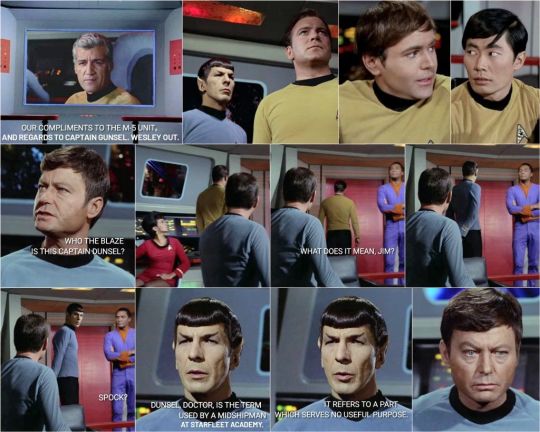
That time Kirk left the bridge because he was butt hurt.
(despite the confusion in the subtitles the correct term is "dunsel")
#Star Trek#Star Trek: The Original Series#The Ultimate Computer#Commodore Robert Wesley#Mr. Spock#Captain James T. Kirk#Ensign Pavel Chekhove#Lieutenant Hikaru Sulu#Doctor Leonard “Bones” McCoy#Lieutenant Nyota Uhura#Dr. Richard Daystrom#dunsel
18 notes
·
View notes
Text
[MR FAG] Why then, the cause of all this is L-O-V-E -- love, Thomas, who, as you may get read to you, has been a masquerader ever since the days of Jupiter.
Richard Brinsley Sheridan, The Rivals
#quote#quotation#Richard Brinsley Sheridan#The Rivals#love#masquerader#false pretence#a captain is pretending to be an ensign#unfortunately his whole family has shown up in town#can't wait for people to start jumping in and out of cupboards again
1 note
·
View note
Text
Some thoughts after rewatching Turn 1x02:
If I remember correctly, they showed Ensign Baker in Connecticut? That's a bit of a schlep from Setauket. Maybe I'm misremembering.
The friend I'm rewatching with also thought that John André was being played by Tom Hiddleston, they have a similar look. She was also confused by the André braid, I had to be like "no it's actually so important"
It's kind of weird going back to a time in the show pre-Benedict Arnold. I think Turn showed some good restraint in holding off on introducing his character.
Richard is right back in Abe's corner after low-key disowning him last episode lmao. Just gives the biggest sigh of relief when he finds out that Abe actually didn't murder anyone (yet) (kinda).
Anna and Abe celebrate plotting Simcoe's murder.
Ben and Caleb try to play Good Cop/War Criminal Cop against Simcoe. Ben and Caleb lose.
Detectives Abraham and Rogers were fun. RIP to that random British soldier Rogers stabbed tf out of, he did not see his night ending that way.
Anyone have any ideas on why Ben stopped Caleb from killing Simcoe to just be like "no! I'll do it 😤😤😤," conveniently giving Simcoe just enough home to be rescued by General Scott and his crew? Simcoe kind of thanks Ben for this, telling Scott to go easy on Ben because he had been such a gentleman. How thoughtful.
Abe quits spying. The end.
7 notes
·
View notes
Text
masterlist!
TURN! Washington's Spies
Caleb Brewster
George Washington
Benjamin Tallmadge
Marquis de Lafayette
Robert Townsend
Ensign [Thomas] Baker
John Graves Simcoe
Hercules Mulligan
John André
Edmund Hewlett
Selah Strong
Alexander Hamilton
Robert Rogers
misc. headcanons
The Dreamer Comic
Nathan Hale
Thomas Knowlton
Enoch Hale
Sons of Liberty
Paul Revere
Sam Adams
Dr. Joseph Warren
John Adams
1776 Musical
Thomas Jefferson
Richard Henry Lee
Roger Sherman
*Misc
Charles Sumner
18 notes
·
View notes
Text
Ensign O'Toole
I typically do not share content regarding American television shows or films; however, I consider the series Ensign O'Toole to be an exception. Throughout its airing, the show featured numerous special guests, with my favourite episode being the fourth, titled "Operation: Benefit," which included an appearance by the Kim Sisters.

Ensign O'Toole is an American television sitcom featuring Dean Jones in the lead role as a naval officer on the USS Appleby, a United States Navy destroyer, set in the early 1960s. The show was broadcast from 1962 to 1963 and was directed by a range of individuals, including Hy Averback, Richard Kinon, and Jackie Cooper, among others. The series drew inspiration from two works by William Lederer, namely All the Ships at Sea (1950) and Ensign O'Toole and Me (1957), with Lederer serving as a consultant. The fictional USS Appleby was represented by the destroyer USS Frank E. Evans (DD-754).
Synopsis
Ensign O'Toole serves as a junior officer on the fictional destroyer USS Appleby during the peacetime era of the early 1960s in the United States Navy. The crew includes Lieutenant Commander Virgil Stoner, the executive officer; Lieutenant (junior grade) Rex St. John, the wealthy and often confused supply officer; and a variety of eccentric crew members, such as Chief Petty Officer Homer Nelson, who frequently seeks poker games and clashes with O'Toole, along with Seamen Gabby Di Julio, Howard Spicer, and Claude White. O'Toole, characterized by his laid-back demeanour, possesses intelligence, multilingual abilities, and a knack for trivia, yet he tends to shirk responsibilities in favour of pranks and outshining the ambitious St. John, often with the crew's enthusiastic support. The commanding officer of Appleby remains off-screen, with Lieutenant Commander Stoner typically conveying orders, although the commanding officer's voice occasionally emanates from the ship's "squawk box".

The destroyer USS Frank E. Evans (DD-754), seen in April 1963, portrayed the fictional USS Appleby.
Broadcast history
Ensign O'Toole debuted on NBC on September 23, 1962, and concluded after one season, with its final episode airing on May 5, 1963. The series, which consisted of 32 original episodes, continued to be rerun in its regular Sunday 7:00 p.m. time slot until September 15, 1963. Subsequently, from March to September 1964, ABC broadcast reruns of the show on Thursdays at 9:00 p.m., with the last episode airing on September 10, 1964, before Bewitched replaced it the following week. As of April 2023, the series has been available in the United Kingdom on Talking Pictures TV.
Cast:
The ensemble cast of Ensign O'Toole features Dean Jones in the titular role of Ensign O'Toole. Supporting him are Jay C. Flippen as Chief Petty Officer Homer Nelson, Jack Mullaney portraying Lieutenant (junior grade) Rex St. John, and Jack Albertson as Lieutenant Commander Virgil Stoner. The cast also includes Harvey Lembeck as Seaman Gabby Di Julio, Beau Bridges as Seaman Howard Spicer, and Bob Sorrells as Seaman Claude White. Recurring roles are filled by Stuart Margolin as Lieutenant Miller, Skip Ward as Lieutenant Ferguson, Ken Berry as Lieutenant Melton, Gerald Trump as Crump, Andrew Colmar as Naismith, and Eddie Peterson as Selby.
youtube
Episode 1-12 List:
The list below presents the first part of a compilation detailing episodes 1 to 12 of the US series Ensign O'Toole, which includes the titles, air dates, and summaries of the events occurring in each episode. Enjoy ;)
Episode 1 - "Operation: Kowana," directed by Hy Averback and penned by Bill Davenport, premiered on September 23, 1962.

In this episode, the crew of the Appleby is cautioned to maintain decorum during their shore leave in the Japanese port of Kowana, following a previous incident where a U.S. Navy crew inundated the town with counterfeit currency. Tensions rise when a local resident mistakenly believes he has won the Appleby in a poker game. The episode features guest appearances by Victor Sen Yung and Mako (マコ).
Episode 2, titled "Operation: Model T," was directed by Hy Averback and penned by Jim Fritzell and Everett Greenbaum, premiering on September 30, 1962.

In this episode, Lieutenant (junior grade) St. John inadvertently damages a French doctor's Ford Model T while trying to fix it on a South Pacific island in French Polynesia. Subsequently, O'Toole acquires the vehicle and instructs the crew to camouflage it in parts aboard the Appleby. Upon the ship's arrival in California, he has the car reassembled for sale; however, before the intended buyer can inspect it, an admiral with a passion for antique cars spots it at the dock. The episode features guest appearances by Don Beddoe, Susan Silo, Emil Genest, and Alberto Morin.
Episode 3, titled "Operation: Daddy," was directed by Hy Averback and penned by James Allardice and Tom Adair, premiering on October 7, 1962.

In this episode, Seaman White's wife is on the verge of childbirth in Omaha, Nebraska, while he remains stationed on the Appleby in San Diego, California. With Lieutenant Commander Stoner unavailable to intervene, O'Toole is confident that he can promptly secure leave papers for White. The episode features guest appearances by Molly Dodd, Merle Pertile, and Davis Roberts.
Episode 4, titled "Operation: Benefit," was directed by Hy Averback and penned by Sheldon Keller and Howard Merrill, premiering on October 14, 1962.

In this episode, O'Toole intends to allocate the funds generated from the "Foster Father's Follies," a talent show organized by the crew of the Appleby, to support the girls residing in a South Korean orphanage. Notable guest appearances include Cherylene Lee, Grace Lee Whitney, James Hong, The Kim Sisters, and Dick Powell, who was serving as the head of Four Star Television during this period.
Episode 5, titled "Operation: Jinx," was directed by Hy Averback and penned by Sheldon Keller and Howard Merrill, premiering on October 21, 1962.

The narrative follows Seaman Jerome J. "Jinx" Johnson, who joins the crew of the Appleby. Chief Petty Officer Nelson warns the sailors of impending misfortune, as Johnson is regarded as a harbinger of bad luck within the U.S. Navy. Consequently, the crew experiences a series of mishaps shortly after Johnson's arrival. The episode features guest appearances by Soupy Sales as "Jinx" Johnson, along with Sandra Gould, Sid Gould, Clyde Adler, Harvey Perry, Michael Adair, and Ed Craig.
Episode 6, titled "Operation: Holdout," was directed by Hy Averback and penned by Sheldon Keller and Howard Merrill, premiering on October 28, 1962.

In this episode, the Appleby responds to a distress call from two American soldiers stationed on a remote Pacific island, who assert they are under attack by Japanese forces. Upon arrival, the crew discovers both American and Japanese soldiers entrenched in combat, unaware that World War II concluded in 1945, and that it is now 1962. The episode features guest appearances by Mako, James Hong, Davis Roberts, Tige Andrews, and Eddie Ryder.
Episode 7, titled "Operation: Birthday," was directed by Don Taylor and written by James Komack, Bill Davenport, and Charles Tannen, airing on November 4, 1962.

In this episode, the crew seeks to purchase a watch for Chief Nelson's birthday; however, they find themselves lacking sufficient funds. To resolve this issue, O'Toole formulates a strategy to win the necessary money from Nelson through a poker game, as the crew is financially constrained while only Nelson possesses any money.
Episode 8, titled "Operation: Dinner Party," was directed by Robert Gordon and written by Sheldon Keller and Howard Merrill, airing on November 11, 1962.

In this episode, Lieutenant (junior grade) St. John misplaces the funds entrusted to him by Lieutenant Commander Stoner for a diplomatic gathering. In response, O'Toole offers to assist St. John by organizing the event at no cost, intending to procure food from other vessels in the fleet and enlisting Chief Petty Officer Nelson to concoct a beverage that could pass for "wine." The episode features guest appearances by Jay Novello, Jan Arvan, Veola Vonn, Norma Varden, Ramsey Hill, Irwin Ashkenazy, and George Baxter.
Episode 9, titled "Operation: Mess," was directed by James Komack and penned by writers Sheldon Keller and Howard Merrill, airing on November 18, 1962.

In this episode, O'Toole grapples with the growing dissatisfaction regarding the deteriorating quality of food on the Appleby, despite the fact that the ship's cook, Charlie, had previously earned a reputation for his culinary skills. The episode features guest appearances by Harry Morgan, Les Brown, Jr., Stafford Repp, Herbie Faye, Joe Higgins, Larry Perron, and John Kahn.
Episode 10, titled "Operation: Impersonation," was directed by Don Taylor and written by Bill Davenport and Charles Tannen, airing on November 25, 1962.

In this episode, Lieutenant Commander Stoner finds himself in trouble after consuming excessive amounts of Malayan punch, leading to his arrest for recklessly driving a truck through a Malayan general's cherished garden. In an effort to secure leniency for Stoner, O'Toole takes on the role of Appleby’s superior officer to appeal to the outraged general. The episode features guest appearances by Edgar Barrier, Pamela Searle, Ben H. Wright, and Alan Caillou.
Episode 11, titled "Operation: Hypnosis," was directed by Lawrence Dobkin and written by Bill Davenport and Charles Tannen, airing on December 2, 1962.

In this episode, O'Toole employs hypnosis on Chief Petty Officer Nelson to curb his gambling habits and on Lieutenant (junior grade) St. John to instil a belief in his superiority as a naval officer, leading to a series of chaotic events. The guest appearance features Michael Adair, highlighting the comedic turmoil that arises when O'Toole transforms St. John into a strict adherent of regulations and alters the Chief's attitude towards gambling.
Episode 12, titled "Operation: Potomac," was directed by Hy Averback and written by Sheldon Keller and Howard Merrill, airing on December 9, 1962.

In this episode, while the Appleby is docked in Washington, D.C., Ensign O'Toole begins receiving mysterious gifts from an unknown admirer. The situation escalates when one of the gifts, a dress, prompts teasing from the crew, leading O'Toole to investigate the source of the gifts. His inquiry reveals the existence of another Ensign O'Toole at the base, who is female. The episode features guest appearances by Carolyn Kearney, Norm Alden, Dee Carroll, John Newton, Tyler McVey, Mike Mason, and Richard Eastham.
2 notes
·
View notes
Text



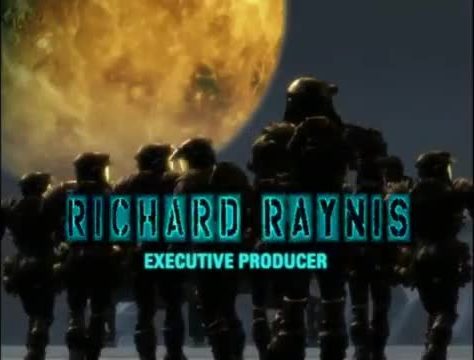
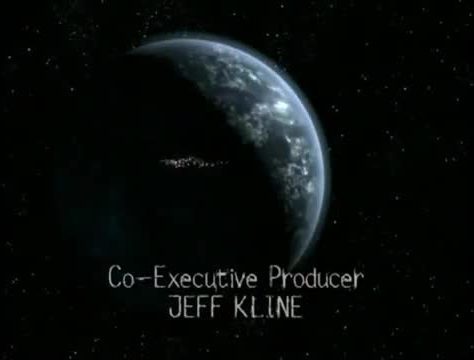
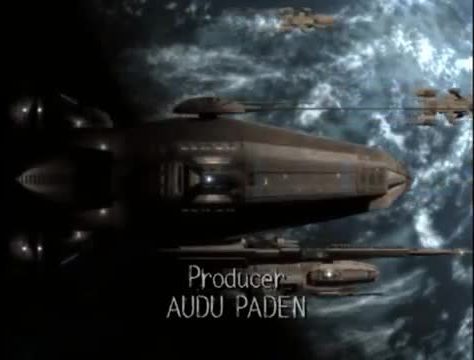


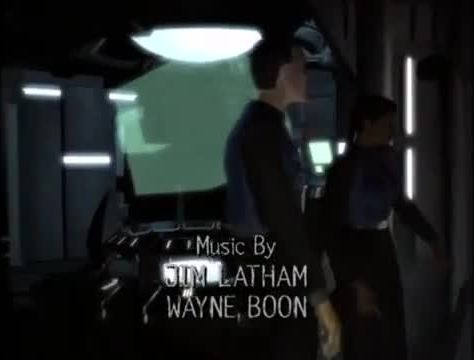
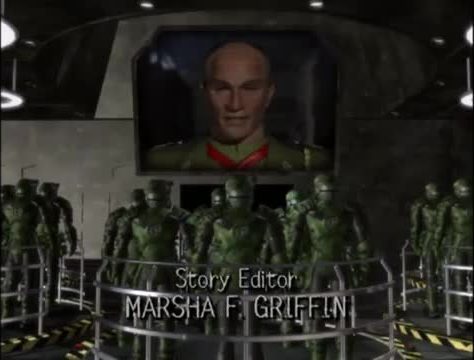
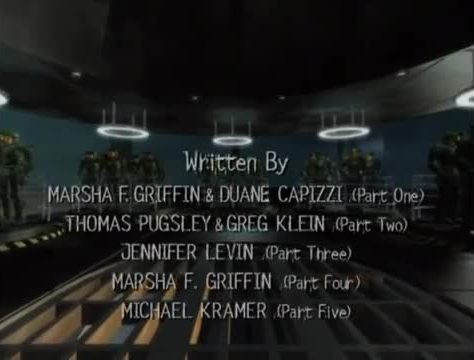

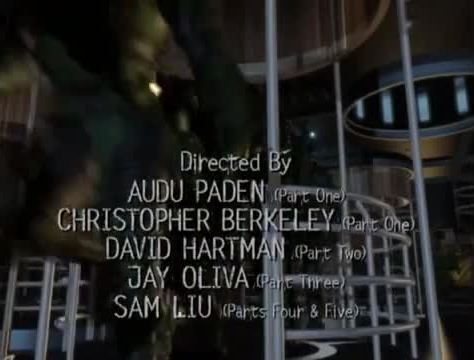

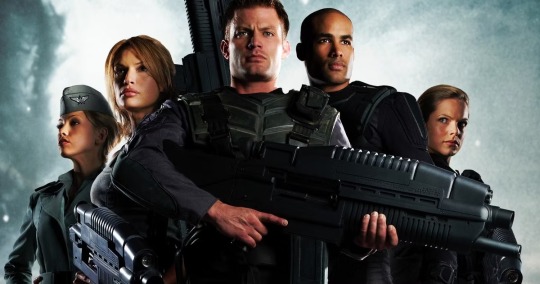
Roughnecks: Starship Troopers Chronicles - Syndication - August 30, 1999 - April 3, 2000
Animated / Science Fiction (40 episodes) (4 clip shows)
Running Time: 30 minutes
Voice Stars:
Private/Corporal/Sergeant/Lieutenant John T. "Johnny" Rico (voiced by Rino Romano)
Private Isabelle "Dizzy" Flores (voiced by Elizabeth Daily)
Lieutenant Jean Razak (voiced by Jamie Hanes)
Sergeant Francis Brutto (voiced by David DeLuise)
Corporal Richard "Doc" LeCroix (voiced by James Horan)
Corporal Jeff "Goss" Gossard (voiced by Bill Fagerbakke)
Lieutenant/Ensign Carmen Ibanez (voiced by Tish Hicks)
Lieutenant/Major Zander Barcalow (voiced by Nicholas Guest)
Special Operations Tactician Carl Jenkins (voiced by Rider Strong)
Private Robert "Paperboy" Higgins (voiced by Alexander Polinsky)
Private "Colonel" T'Phai (voiced by Steve Staley)
Commander Marlow (voiced by Thomas Wagner)
General Miriam Redwing (voiced by Irene Bedard)
Sky Marshal Sanchez (voiced by R. Lee Ermey)
Lt. Earl Walker (voiced by Michael Harrington)
C.H.A.S. (Cybernetic Humanoid Assault System) (voiced by Ed Hopkins)
Drill Instructor/Sergeant Charlie Zim – (voiced by Clancy Brown)
7 notes
·
View notes
Note
Top five favorite period piece characters (Hornblower, Turn, 1776, etc)
GOOD QUESTION!!!!!
1. Horatio Hornblower 💓💝💞💕💖💖❤️💓💖 he's just an amazing little guy
2. 1776 Thomas Jefferson
3. TURN Ensign Baker
4. 1776 Richard Henry Lee
5. 1776 Martha Jefferson
There are probably characters who I'm forgetting but I actually can't remember them 😔 but you hit the nail on the head with the ones you named lol
3 notes
·
View notes
Text

Sinéad O'Connor - Mandinka (1987) Sinéad O'Connor from: "The Lion and the Cobra" (LP) "Mandinka" / "Drink Before The War" (Single)
Alternative | Indie Rock
JukeHostUK (left click = play) (320kbps)
Personnel: Sinéad O'Connor: Lead Vocals / Electric Guitar / Backing Vocals Marco Pirroni: Guitar (Acoustic and Electric) Mike Clowes: Keyboards Richard "Spike" Holifield: Bass John Reynolds: Drum / Drum Machine
Arranged by Sinéad O’Connor Produced by Sinéad O'Connor / Kevin Moloney
Recorded: @ Oasis Studios in Camden, London England UK 1986–1987
Album Released: on November 4, 1987
Ensign Records (UK) Chrysalis Records (US)
Single Released: on December 1, 1987 (UK) on December 29, 1987 (US)
Ensign Records (UK) Chrysalis Records (US)
#Sinéad O'Connor#Mandinka#The Lion and the Cobra#Ensign Records#Chrysalis Records#1980's#Alternative#Indie Rock#Kevin Moloney
7 notes
·
View notes
Text
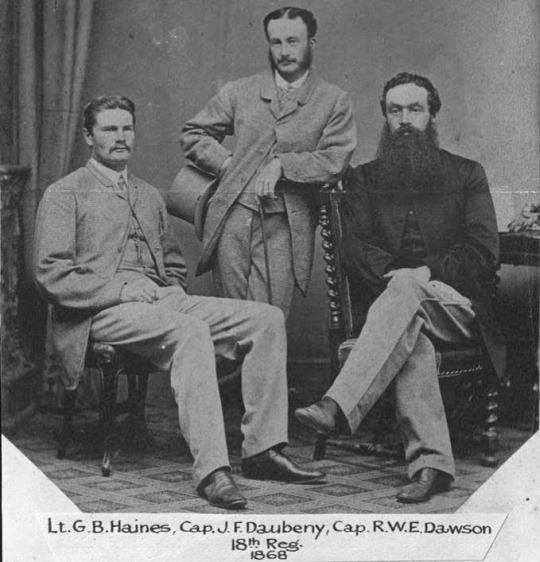
Lieutenant Bernard Haines, Captain James Daubeny and Captain Richard Dawson, all of the 18th, Royal Irish Regiment, New Zealand, 1868. Ensign Bernard Gilpin Haines gets one mention in Campaigns and History of the Royal Irish Regiment, appearing on the list of officers who deployed to New Zealand with the 2nd Battalion in 1863. Haines was born in London on 6th February 1842, the son of Samuel and Ann Haines. His Ensign's commission dated from 18th January 1861.He was promoted Lieutenant in October 1865 and retired from the service on 5th July 1873 receiving the value of his commission. Haines became a Militia Captain in the 4th Battalion, East Surrey Regiment on 10th May 1882, promoted to Major on 24th December 1892. He was promoted to Lieutenant Colonel , commanding the 4th Battalion, East Surrey Regiment on 31st October 1894. Haines was granted the honorary rank of Colonel on 28th November 1894, and he retired from the Militia on 1st January 1902.
Richard William Erskine Dawson was born on 31st December 1832 in Malta, the son of Major George Thomas Dawson, 73rd Foot, and his wife Euphemia née Erskine. Dawson fought in the Crimean War and in the Maori Wars with the 18th Royal Irish. He was Lieutenant Colonel commanding the 2nd Battalion, Royal Irish Regiment between 1882 and 1886 and eventually rose to the rank of Major-General. Richard Dawson and Florence Anna Barton, daughter of Lieutenant Colonel Hugh William Barton were married on 13th May 1871, in Croydon, England. The couple had no children. Dawson died on 11th June 1890, aged 57, in Kensington, London.
#18thfoot #royalirishregiment #newzealand #maoriwars
Photo Credit; Museum of New Zealand, Te Papa Tongarewa
3 notes
·
View notes
Text
OTD

TODAY IN HISTORY The Associated Press
In 1924, 14-year-old Bobby Franks was murdered in a “thrill killing” carried out by University of Chicago students Nathan Leopold Jr. and Richard Loeb (Bobby’s distant cousin).
In 1927, Charles A. Lindbergh landed his Spirit of St. Louis monoplane near Paris, completing the first solo airplane flight across the Atlantic Ocean in 33 1/2 hours.
In 1932, Amelia Earhart became the first woman to fly solo across the Atlantic Ocean as she landed in Northern Ireland, about 15 hours after leaving Newfoundland.
In 1955, Chuck Berry recorded his first single, “Maybellene,” for Chess Records in Chicago.
In 1972, Michelangelo’s Pietà , in St. Peter’s Basilica at the Vatican, was damaged by a hammer-wielding man. (The sculpture went back on display 10 months later after it was reconstructed.)
In 1979, former San Francisco City Supervisor Dan White was convicted of voluntary manslaughter in the slayings of Mayor George Moscone and openly gay Supervisor Harvey Milk. Outrage over White’s lenient sentence sparked the White Night riots that evening.
On May 21 … ON MAY 21 …
In 1471, painter and printmaker Albrecht Durer was born in Nuremberg, Germany.
In 1542 Spanish explorer Hernando de Soto died while searching for gold along the Mississippi River.
In 1832 the first Democratic National Convention got under way, in Baltimore.
In 1840 New Zealand was declared a British colony.
In 1881 Clara Barton founded the American Red Cross.
In 1924 14-year-old Bobby Franks was murdered in a “thrill killing” committed by Nathan Leopold Jr. and Richard Loeb, two students at the University of Chicago.
In 1927 Charles Lindbergh landed his Spirit of St. Louis near Paris, completing the first solo airplane flight across the Atlantic Ocean. In 1956 the United States exploded the first airborne hydrogen bomb over Bikini Atoll in the Pacific.
In 1968 the nuclear-powered U.S. submarine Scorpion, with 99 men aboard, was last heard from. (The remains of the sub were later found on the ocean floor 400 miles southwest of the Azores.)
In 1979 former San Francisco City Supervisor Dan White was convicted of voluntary manslaughter in the slayings of Mayor George Moscone and Supervisor Harvey Milk.
In 1980 Ensign Jean Marie Butler became the first woman to graduate from a U.S. service academy as she accepted her degree and commission from the Coast Guard Academy in New London, Conn.
In 1991 former Indian Prime Minister Rajiv Gandhi was assassinated by a suicide bomber.
In 1998, in the wake of deadly anti-government protests, Indonesia President Suharto stepped down after 32 years in power and was succeeded by Vice President B.J. Habibie.
Also in 1998 teen gunman Kip Kinkel opened fire inside Thurston High School in Springfield, Ore., killing two students, a day after killing his parents. (Kinkel was sentenced to 112 years in prison for the slayings.)
In 1999 Susan Lucci won a Daytime Emmy Award for best actress on her 19th try.
In 2004 the UN Security Council approved a peacekeeping force of 5,600 troops for Burundi to help the African nation finally end a 10-year civil war.
In 2012 a suicide bomber killed about 100 and wounded hundreds in Sanaa, Yemen, during rehearsals for a military parade.
In 2014 a Cairo court sentenced former Egyptian President Hosni Mubarak to three years in prison for plundering the state treasury. In 2016 U.S. special operations forces launched a drone strike that killed Taliban leader Mullah Mansour in a remote town in Pakistan.
In 2017 Ringling Bros. and Barnum & Bailey Circus performed its last shows at the Nassau Coliseum in Uniondale, N.Y., ending 146 years as “The Greatest Show on Earth.”
0 notes
Text
"What, hast smutched thy Nose? / They say it is a copy out of mine." (1.2.154-155)

A sculpture of Actaeon in Caserta. Wikimedia, https://commons.wikimedia.org/wiki/File:Actaeon_Caserta_(cropped).jpg.
Our class discussion about the overlap between The Winter’s Tale and Othello fascinated me. On the one hand, The Winter’s Tale appears to retread the plot of Othello: just as Othello’s suspicions of adultery drive him to murder his wife Desdemona, Leontes’ unfounded jealousy of the rapport between his wife Hermione and his friend Polixenes consumes him, engulfing his kingdom of Sicily in scandal and destroying his family. I included the Actaeon sculpture in this post because Actaeon, with his stag horns, symbolizes cuckoldry. Anxieties about cuckoldry plague both Othello and Iago, who frequently employ the imagery of horns in their speech:
OTHELLO. O curse of marriage, That we can call these delicate creatures ours And not their appetites! . . . . . . . . . . Yet ’tis the plague of great ones; Prerogatived are they less than the base. ’Tis destiny unshunnable, like death. Even then this forkèd plague is fated to us When we do quicken. (3.2.309-318; emphasis mine)
OTHELLO. A hornèd man’s a monster and a beast. (4.1.77)
LEONTES. Thou want’st a rough pash and the shoots that I have, To be full like me (1.2.164-165; emphasis mine)
LEONTES. Gone already! Inch-thick, knee-deep, o’er head and Ears a fork’d one! . . . . . . . . . . There have been, Or I am much deceived, cuckolds ere now (1.2.231-239)
As we noted in class, however, Othello’s jealousy seems a bit more credible. Othello’s ensign Iago carefully orchestrates the appearance of Desdemona’s infidelity, pushing Othello from a man who would never doubt the integrity of his wife into a man gripped by “the green-eyed monster” of jealousy (3.3.196). Leontes has no such confidant pulling the wool over his eyes; he invents the adultery whole cloth, having merely witnessed his Hermione bantering lightly with Polixenes. Is the connection between Othello and The Winter’s Tale tenuous, then? Do they treat jealousy in entirely different ways? After all, the former ends with Othello’s murder of Desdemona and subsequent suicide, and the latter with the miraculous reappearance of Hermione and reconciliation between Leontes and Polixenes.
It seems to me that there is another connection between Othello and The Winter’s Tale: racial conflict. Dr. Hamlin touched upon how this materializes in Othello, explaining how Iago plays up the racial tension to stoke Othello’s insecurities, suggesting that Desdemona betrayed her Italian nature in marrying a Moor:
IAGO. Ay, there’s the point. As, to be bold with you, Not to affect many proposèd matches Of her own clime, complexion, and degree, Whereto we see in all things nature tends— Foh! One may smell in such a will most rank, Foul disproportion, thoughts unnatural— (3.3.268-273)
Othello buys into Iago’s racial rhetoric, wondering whether his racial and cultural differences render him insufficient to Desdemona compared to the Italian Cassio: “Haply, for I am black / And have not those soft parts of conversation / That chamberers have” (3.3.304-306). Of course, it is not merely Iago’s instigation that induces these doubts. Othello’s identity as a Moor had already scandalized his marriage to Desdemona; her father Branatio spends the first half of the play attempting to undo their marriage, seeking legal recourse against Othello. Iago merely seizes upon those racial insecurities to whip Othello into a jealous frenzy.

Pickersgill, Frederick Richard. Othello and Desdemona. Oil on canvas, 1858. Wikimedia Commons, https://commons.wikimedia.org/wiki/File:Frederick_Richard_Pickersgill_-_Othello_and_Desdemona.jpg.
What we did not discuss in class was the similar tensions at work in Winter’s Tale. Throughout our discussion, I wondered whether Leontes’ jealousy might issue somehow from racial or ethnic insecurity, as he rules over the Mediterranean island of Sicily, whereas Polixenes presides over Bohemia to the north. I first found this possibility suggested in the opening scene of the play, in which Archidamus and Camillio discuss the long friendship between Leontes and Polixenes and the relationship between the two countries.
ARCHIDAMUS. If you shall chance, Camillo, to visit Bohemia on the like occasion whereon my services are now on foot, you shall see, as I have said, great difference betwixt our Bohemia and your Sicilia. (1.1.1-4)
After perusing JSTOR for potential answers on the significance of these differences, I found the article “‘What means Sicilia? He something seems unsettled’: Sicily, Russia, and Bohemia in ‘The Winter’s Tale’” by R.W. Desai. Explaining the racial tensions between Leontes and Polixenes, Desai writes:
Leontes would be a distinct contrast to Hermione in appearance, and this distinction should be made by directors of stage and film productions of The Winter’s Tale. What exacerbates Leontes’ insecurity and sexual jealousy could be well the physical and cultural affinity that Polixenes has with Hermione. Polixenes, king of Bohemia, is, like Hermione, of Slavic descent. . . . . . . . Hermione’s easy familiarity with Polixenes, so galling to Leontes and so grievously misunderstood by him, springs not from a perversity of nature but from his misinterpretation of the social mores and customs of northern Europe to which they belong. (316)
Desai’s cultural-anthropological reading of The Winter’s Tale provides another context with which to understand Leontes' jealous spiral. As evidence, Desai points to Leontes' recollection of his courting of Hermione, in which he emphasizes her white skin: "Ere I could make thee open thy white hand / And clap thyself my love; then didst thou utter / 'I am yours forever'" (1.2.132-134). I would add to Desai’s analysis the brief but notable switch to a vernacular dialect in Leontes’s speech when he grows more suspicious of an affair between Hermione and Polixenes: "I’ fecks! / Why, that’s my bawcock. What, hast smutched thy Nose? / They say it is a copy out of mine" (1.2.153-155).
Unable to understand the social customs of Hermione’s and Polixenes’s northern European society, Leontes speaks in colloquialisms, further accenting his cultural difference. Leontes’ intense scrutiny on the physical resemblance—or lack thereof—between him and Mamillius is also amplified by this racial reading: Leontes is scanning his son’s face for markers of an ethnic Other.
Through Mamillius’s character, Winter’s Tale brings a genealogical element to this racial conflict, building upon the intersection of racial and sexual jealousy that Shakespeare began in Othello. The difference also manifests in the handling of Desdemona of Hermione. In answering to Othello’s charges of adultery, Desdemona appeals to her Christian virtue and her obedience as a wife:
OTHELLO. Are not you a strumpet? DESDEMONA. No, as I am a Christian! If to preserve this vessel for my lord From any other foul unlawful touch Be not to be a strumpet, I am none. (4.2.94-98)
Though Hermione also asserts her integrity and loyalty and chastity during her trial, there is the added element that she is also fighting for her son’s legitimacy and her daughter’s life:
HERMIONE. A moiety of the throne, a great king’s daughter, The mother to a hopeful prince, here standing To prate and talk for life and honor fore Who please to come and hear. (3.2.40-43)
HERMIONE. My second joy And first fruits of my body, from his presence I am barred like one infectious. My third comfort, Starred most unluckily, is from my breast, The innocent milk in it most innocent mouth, Haled out to murder. (3.2.103-108)
The textual suggestion here, obviously, is that Mamillius and Perdita—innocent children—are unjustly swept up in Leontes’s inquisition. It reminds a little of Aaron’s child in Titus Andronicus, whose live was also politicized from the moment of his birth on account of his race. If the infant were white, then Tamora might have easily maintained the face, but because he is Black it immediately produces a scandal. Winter’s Tale functions similarly, except in this case no adultery occurred at all: Perdita is Leontes’s true born daughter.
Whereas Othello is a direct confrontation of racial tensions in European societies, The Winter’s Tale offers a more subtle approach, illustrating how unspoken racial and cultural differences animate the interior life and produce political conflict. Though Leontes does not speak his insecurities, the tension nevertheless manifests through his paranoia about Hermione’s and Polixenes’s rapport and his focus on the legitimacy of his son and daughter.
Works Cited
Desai, R. W. “‘What Means Sicilia? He Something Seems Unsettled’: Sicily, Russia, and Bohemia in ‘The Winter’s Tale.’” Comparative Drama, vol. 30, no. 3, 1996, pp. 311–24. JSTOR, http://www.jstor.org/stable/41153814. Accessed 19 Apr. 2025.
Shakespeare, William. Othello. Folger Shakespeare Library, https://www.folger.edu/explore/shakespeares-works/othello/read/. Accessed 19 Apr. 2025.
Shakespeare, William. The Winter's Tale. Folger Shakespeare Library, https://www.folger.edu/explore/shakespeares-works/the-winters-tale/. Accessed 19 Apr. 2025.
0 notes
Text
HOUSE (1982) – Episode 256 – Decades Of Horror 1980s
“Damn! Come out of the grave and run out of ammunition!” Resurrection without ordinance? Such a disappointment. Join your faithful Grue Crew – Crystal Cleveland, Chad Hunt, Bill Mulligan, and Jeff Mohr – as they discuss House (1986), a comedy horror picture with its acting roots in Eighties television.
Decades of Horror 1980s Episode 256 – House (1986)
Join the Crew on the Gruesome Magazine YouTube channel! Subscribe today! Click the alert to get notified of new content! https://youtube.com/gruesomemagazine
Gruesome Magazine is partnering with the WICKED HORROR TV CHANNEL (https://wickedhorrortv.com/) which now includes video episodes of Decades of Horror 1980s and is available on Roku, AppleTV, Amazon FireTV, AndroidTV, and its online website across all OTT platforms, as well as mobile, tablet, and desktop.
A Vietnam vet/horror novelist’s son disappears while visiting his aunt’s house. His search for his son destroys his marriage and his writing career. When the troubled writer moves into the haunted house after inheriting it from his aunt, the evil ghosts in the house force him to endure a harrowing journey into his past.
Directed by: Steve Miner
Writing Credits: Ethan Wiley (screenplay); Fred Dekker (story)
Produced by: Sean S. Cunningham (producer)
Music by: Harry Manfredini
Cinematography by: Mac Ahlberg (director of photography)
Production Design by: Gregg Fonseca
Special Paintings by: William Stout (as Bill Stout), Richard Hescox
Special Effects by:
James Cummins (creature design/creature effects designer: Backwood Films)
Kirk R. Thatcher (creature designer: Backwood Films) (as Kirk Thatcher)
Visual Effects by:
Mark Sullivan (stop-motion animation)
William Reilly (motion control technician)
Stunt Coordinator: Kane Hodder
Selected Cast:
William Katt as Roger Cobb
George Wendt as Harold Gorton
Richard Moll as Big Ben
Kay Lenz as Sandy Sinclair
Mary Stavin as Tanya
Michael Ensign as Chet Parker
Erik Silver as Jimmy
Mark Silver as Jimmy
Susan French as Aunt Elizabeth
Alan Autry as Cop #3
Steven Williams as Cop #4
James Calvert as Grocery Boy (as Jim Calvert)
Mindy Sterling as Woman in Bookstore
Jayson Kane as Cheesy Stud
Billy Beck as Priest
Bill McLean as Mr. Jones
Steve Susskind as Frank McGraw
John William Young as Would-be Writer (as John Young)
Dwier Brown as Lieutenant
Joey Green as Fitzsimmons
Stephen Nichols as Scott
Donald Willis as Soldier
Ronn Carroll as Policeman
Robert Joseph as Robert
Curt Wilmot as Skeleton Big Ben
Peter Pitofsky as Witch
Elizabeth Barrington as Little Critter
Jerry Maren as Little Critter
Felix Silla as Little Critter
The rallying cry from the Grue Crew is, “Chad is back!” For his return episode, the crew picks an 80s movie that surely everyone has seen. Well, everyone but Jeff. The film is HOUSE, released in 1985… or is it 1986? Covered seven years ago by Doc Rotten, Christopher G. Moore, and Thomas Mariani in episode 105, the current crew decided to revisit this comedy-horror feature. Starring some 80s TV icons – William Katt (The Greatest American Hero, 1981-1983), George Wendt (Cheers, 1982-1993), Richard Moll (Night Court, 1984-1992) – the cast, crew, and effects give them plenty to talk about and there’s plenty of taglines for Chad’s return. Welcome back, brother!
At the time of this writing, House is available to stream from Tubi, PlutoTV, and Amazon Prime, as well as multiple PPV sources, and on physical media as a Blu-ray from Arrow Video.
Every two weeks, Gruesome Magazine’s Decades of Horror 1980s podcast will cover another horror film from the 1980s. The next episode’s film chosen by Chad, will be Spookies (1985), a film whose making-of story might be more interesting than the movie itself.
Check out this episode!
1 note
·
View note
Text
#i think one thing one tends to forget#is that we meet miles when he's awfully young#whereas aral is 44 and so done with everything#but he's still an insubordinate little shit at heart#so one might wonder what he was like as an ensign#probably more like miles than we suspect (tags via @fenix-estrafalario)
Good point. We don't really see Aral first-hand during his youth, so it's a bit hard to compare what he was like in his teens/twenties to Miles in his teens/twenties, the latter of which we see first-hand over multiple books (around half the series, in fact). The closest we get is some minor second-hand glimpses in Shards and Barrayar, which portray a pretty different picture of him than the much more controlled and serious middle-aged Aral we see first-hand. For example, I ran across this little nugget a few days ago in Barrayar; it's spoken by Padma Vorpatril to Cordelia, while he's describing a young Aral:
"Anyway, it was dangerous to get him too relaxed, because then he'd go all depressed and serious, and then it didn't take a thing to get him on to whatever current injustice or incompetence or insanity was rousing his ire. God, the man could talk. By the time he'd had his fifth drink—just before he slid under the table for the night—he'd be declaiming revolution in iambic pentameter. I always thought he'd end up on the political side someday."
If you squint just a bit, this could almost be Ivan describing a young Miles to Ekaterin circa ACC. Probably the only obvious difference is that it would take Miles far fewer than five drinks to slide under the table. 😉 The bit about how much Aral could talk and even the iambic pentameter sound like classic Miles (pretty reminiscent of Miles reciting the whole of Richard III while under fast penta in BiA).
I'm currently rereading Barrayar, and flipped back to Shards to check on a bit of dialogue, and came across this little line:
"Why can't you just lose your temper with subordinates, like normal men, instead of with superiors, like a lunatic?"
This is said by Rulf Vorhalas to Aral, right after his conversation with Prince Serg in his cabin during the Escobar war. Now, there's a valid reason why Aral speaks to the Prince so disrepectfully - it's a part of the ruse to goad Serg to fight on the frontlines in the war and get annihilated. Nonethless, something tells me that this wasn't in the least bit out of character for Aral, especially as Vorhalas frames it as something that Aral has done before. Which of course, reminds me of this exchange, from The Vor Game:
Cecil flashed a grin. "Quite. Plus your rather irritating habit of treating your superior officers as your, ah . . ." Cecil paused, apparently groping again for just the right word.
"Equals?" Miles hazarded.
"Cattle," Cecil corrected judiciously. "To be driven to your will."
So looks like insubordination runs in the family. 😉 Granted, Miles would never think of "being disrespectful to superiors" as something he has in common with his father (especially as during his lifetime, his father had no superiors, except Gregor), but it's interesting to see that Miles follows in his Da's footsteps in a way that he never intended.
#vorkosigan saga#lois mcmaster bujold#barrayar#aral vorkosigan#miles vorkosigan#i wrote this almost a month ago#but for some reason never posted it#i found it when going through my drafts today
407 notes
·
View notes
Text
Ensign O'Toole
This section presents episodes 13 to 32 of the US television series Ensign O'Toole, which was broadcast from 1962 to 1963 and featured numerous notable guest appearances during its run. In part i talk about the Summary & Ep 1-12.
Episode 13 - "Operation: Gaslight," was directed by Lawrence Dobkin and penned by James Allardice and Tom Adair, premiering on December 16, 1962.

In this episode, Ensign Clifford Bender, a newly minted graduate from the United States Naval Academy, joins the crew of the Appleby, his inaugural assignment. Eager to adhere to regulations, Bender's arrival prompts the crew to prepare for his presence. However, O'Toole takes it upon himself to ensure that Bender undergoes a traditional initiation into naval life, attempting to persuade him that he is afflicted with an unusual maritime illness. The episode features guest appearances by Jamie Farr and Steve Franken.
Episode 14 - "Operation: Brooklyn," was directed by Jackie Cooper and penned by Jack Raymond, premiering on December 23, 1962.

In this episode, Seaman Di Julio expresses his inability to re-enlist, citing a promise made to his parents to manage their restaurant in Brooklyn, New York, allowing them to retire. However, O'Toole uncovers that Di Julio is reluctant to leave the navy, and his parents are equally unwilling to part with their restaurant. The episode features guest appearances by Penny Santon, Joe Higgens, Les Brown, Jr., Bob Hull, and Romo Vincent.
Episode 15 - "Operation: Swindle," was directed by Hy Averback and features a script by Bill Davenport, Charles Tannen, and William J. Lederer, premiering on December 30, 1962.

In this episode, Chief Petty Officer Nelson becomes infatuated with a Southern woman named Leona, who deceives him into losing his money. In response to this situation, O'Toole takes action to address the swindle. The episode includes guest appearances by Rosemary De Camp, Charles Watts, and Dub Taylor.
Episode 16 - "Operation: Treasure," directed by Lawrence Dobkin and penned by Bill Davenport and Charles Tannen, premiered on January 6, 1963.

In this episode, Seaman White discovers a drifting bottle that holds an enigmatic map, prompting O'Toole to speculate that it may point to hidden treasure. The episode features guest appearances by Shary Marshall and Michael Ross.
Episode 17 - "Operation: Intrigue," was directed by Don Taylor and penned by Sheldon Keller and Howard Merrill, airing on January 13, 1963.

In this episode, O'Toole, while accompanying the Appleby family in Hong Kong, learns that Scotland Yard is pursuing a group of jewel thieves. Intrigued by the situation, he opts to assist by going undercover as a courier for the criminals, which leads him into encounters with a jewel smuggler and some dubious tailors. The episode features guest appearances by Robert Emhardt, Howard Morris, Bernard Fox, Chana Eden, Philip Ahn, James Hong, and Harold Fong.
Episode 18 - "Operation: Psychology," directed by Don Taylor and penned by Bill Davenport and Charles Tannen, aired on January 20, 1963.

In this episode, Lieutenant Commander Stoner's brother-in-law, psychologist Arthur Ainsley, comes aboard the Appleby and notes an unusual level of cheerfulness among the crew. However, he deduces that this apparent happiness masks a profound underlying depression among the crew members. The episode features guest star John McGiver.
Episode 19 - "Operation: Royalty," directed by Jeffrey Hayden and penned by William J. Lederer, premiered on January 27, 1963.
In this episode, O'Toole extends an invitation to the Grand Admiral of the Navy of Tiboria, a 12-year-old named Prince Pussik, to come aboard the Appleby. However, O'Toole soon finds himself regretting this decision as he realizes that the young prince has a penchant for issuing commands. The episode features guest appearances by Michael Davis and Lou Krugman.
Episode 20 - "Operation: Whodunit," was directed by Richard Kinon and penned by Sheldon Keller and Howard Merrill, airing on February 3, 1963.

In this episode, the crew of the Appleby is engrossed in a film centered on the murder of Lord Mumbley, having placed significant bets on the identity of the killer. However, when they realize that the final reel of the film is missing, they embark on a frantic quest to uncover the murderer’s identity. The episode features guest appearances by Alan Caillou, Davis Roberts, John Tarangelo, and Kelly Gordon.
Episode 21 - "Operation: Casanova," was directed by Richard Kinon and penned by Howard Leeds, airing on February 10, 1963.

In this episode, O'Toole aims to elevate the spirits of Lieutenant (junior grade) St. John by facilitating his interaction with several appealing WAVES. The situation initially unfolds positively until St. John finds himself in a compromising position, kissing the daughter of a U.S. congressman. The episode features guest appearances by Nancy Rennick, Carol Christensen, Cindy Robbons, Jacqueline Loughery, Ransom Sherman, and Jackie Joseph.
Episode 20 - "Operation: Whodunit," was directed by Richard Kinon and penned by Sheldon Keller and Howard Merrill, airing on February 3, 1963.

In this episode the crew of the Appleby is engrossed in a film—a murder mystery cantered on the assassination of Lord Mumbley—and they have placed significant bets on the identity of the killer. When they realize that the final reel of the movie is absent, they embark on a frantic quest to locate it. Guest appearances include Alan Caillou, Davis Roberts, John Tarangelo, and Kelly Gordon.
Episode 21 - "Operation: Casanova," was directed by Richard Kinon and penned by Howard Leeds, airing on February 10, 1963.

In this episode, O'Toole aims to elevate Lieutenant (junior grade) St. John's diminished self-esteem by facilitating his interaction with several appealing WAVES. The situation unfolds positively until St. John is unexpectedly discovered kissing the daughter of a United States congressman. The episode features guest appearances by Nancy Rennick, Carol Christensen, Cindy Robbons, Jacqueline Loughery, Ransom Sherman, and Jackie Joseph.
Episode 22 - "Operation: Souvenir," was directed by Richard Kinon and written by Bill Davenport and Charles Tannen, airing on February 17, 1963.

In this episode during a shore leave in Japan, Lieutenant Commander Stoner enforces strict regulations on his crew, prohibiting them from bringing back any souvenirs that cannot fit into a footlocker. This creates a dilemma for Lieutenant (junior grade) St. John, who has secretly acquired an antique Japanese cannon for his girlfriend and must devise a plan to conceal it from Stoner. The episode features guest appearances by Don Beddoe and Alan Reed, Jr.
Episode 23 - "Operation: Arrivederci," was directed by Richard Kinon and features a screenplay by Bill Sheldon Keller, Howard Merrill, and William J. Lederer, airing on March 3, 1963.

In this episode during the Appleby's visit to Rome, O'Toole becomes enamoured with Juliet Scarlatti, an aspiring American artist. He offers her the use of the Appleby for an art exhibition, hoping to connect her with influential figures in the Italian art scene; however, the key attendee, prominent society figure Mrs. Atherton, declines to participate. The episode features guest appearances by Sharon Hugveny, Doris Packer, and Émile Genest.
Episode 24 - "Operation: Re-Enlist," was directed by Lawrence Dobkin and written by Bill Davenport, Charles Tannen, and William J. Lederer, airing on March 10, 1963.

In this episode, Lieutenant Commander Stoner is tasked with ensuring that the crew of the Appleby re-enlists in the Navy. Following O'Toole's suggestion, Stoner adopts a more amiable demeanour to motivate the crew, which leads to confusion among them. During a gathering at Stoner's residence, Seaman Di Julio inadvertently dislodges a brick from the fireplace, resulting in the collapse of Stoner's home, necessitating the crew's assistance in its reconstruction.
Episode 25 - "Operation: Boxer," was directed by Richard Kinon and features a script by Bill Davenport, Charles Tannen, and William J. Lederer, airing on March 17, 1963.

In this episode, due to DeJulio's inexperience with the signal lamp, O'Toole proposes a "boxling" match, a twist on bowling, against another ship's crew. Historically, O'Toole has consistently lost bets to Ensign Baxter regarding bowling contests between their respective crews. However, he believes he has discovered a strategy to secure a victory by wagering on a boxing match, enlisting a formidable sailor to compete against Baxter's favoured boxer. The episode features guest appearances by Gary Crosby, Roger Torrey, and Cal Bolder.
Episode 26 - "Operation: Stowaway," was directed and written by James Komack, alongside Bill Davenport and Charles Tannen, and it airing on March 24, 1963.

In this episode, while docked at a Soviet port, the crew of the Appleby initially dismisses O'Toole's claims of seeing a lovely girl through a porthole as a symptom of combat fatigue. However, they soon discover that the girl is actually a stowaway named Anna. Enchanted by her presence, the crew decides to create a party dress for her using flags, tablecloths, and various materials available on the ship. Nita Talbot guest stars in this episode.
Episode 27 - "Operation: Arctic," was directed by Hy Averback and penned by Jim Fritzell and Everett Greenbaum, airing on March 31, 1963.

In this episode the crew experiences restlessness as their journey to the Arctic aboard the Appleby becomes monotonous in the extreme cold. Martin Dean guest stars in this episode.
Episode 28 - "Operation: Physical," was directed by Richard Kinon and features a script by Howard Leeds, Bill Davenport, and Charles Tannen, airing on April 7, 1963.

In this episode Lieutenant Commander Stoner grapples with feelings of nostalgia for his youth and worries about his ability to pass an upcoming physical examination. In an effort to alleviate Stoner's concerns, O'Toole arranges for some of Stoner's former classmates to visit the Appleby, hoping their appearance will make Stoner seem less aged by comparison. However, O'Toole's and the crew's well-intentioned efforts to assist Stoner do not unfold as expected.
Episode 29 - "Operation: Tubby," was directed by Bob Claver and features a script by Sheldon Keller, Howard Merrill, and Bill Davenport, airing on April 14, 1963.

In this episode, Seaman "Tubby" Mason faces the ultimatum of losing weight or facing expulsion from the Navy, prompting him to embark on an extreme diet. However, O'Toole discovers that Tubby's letters are stuffed with luncheon meat and his toothpaste tube is filled with liverwurst. The episode features guest star Stubby Kaye.
Episode 30 - "Operation: Sabotage," was directed by Richard Kinon and written by James B. Allardice, Tom Adair, and Bill Davenport, airing on April 21, 1963.

In this episode, during training exercises, the Appleby is designated as the target for a simulated sabotage operation, orchestrated by a crew member covertly tasked with "destroying" the ship. Lieutenant Commander Stoner boasts that the scheme is doomed to fail, supporting his claim with a substantial wager. He orchestrates a fake sabotage incident and subsequently dares the crew to identify the "saboteur," prompting O'Toole to devise an ingenious solution, as is his custom.
Episode 31 - "Operation: Contest," was directed by Richard Kinon and features a script by Bill Davenport, Charles Tannen, and William J. Lederer, airing on April 28, 1963.

In this episode the crew of the Appleby finds themselves in quarantine, missing their shore leave in Hollywood after Seaman Di Julio has an accident with a tanning lamp and is diagnosed with measles. To occupy their time, they decide to participate in various contests for prize money, including a jingle-writing competition, which Di Julio ultimately wins. Additionally, they are invited to a cooking contest due to Lieutenant (junior grade) St. John’s mother's cookie recipe. However, they encounter a competitor who claims financial hardship and, out of compassion, allow her to win. Later, they learn that she had cheated and is participating in another contest. Guest star: Irene Tedrow.
Episode 32 - "Operation: Geisha," was directed by Richard Kinon and features a screenplay by Ben Starr, Robert O'Brien, and Bill Davenport. It originally aired on May 5, 1963, marking the series finale.

In this episode, con artists Steve Turner and Al Shrieber are compelled to return stolen funds to an angry victim in order to establish a reverse geisha house. Meanwhile, a friend of Lieutenant (junior grade) St. John proposes a new business venture, which O'Toole successfully persuades local entrepreneurs to support. The episode includes guest appearances by Jack Carter, Eddie Ryder, Ransom Sherman, and Linda Bennett.
Episode information & Title scene links:
https://www.tptvencore.co.uk/search/Ensign%20O'Toole
1 note
·
View note
Text
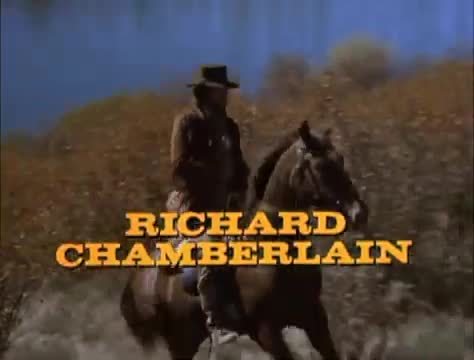
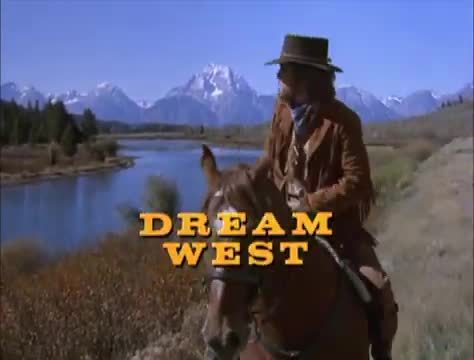
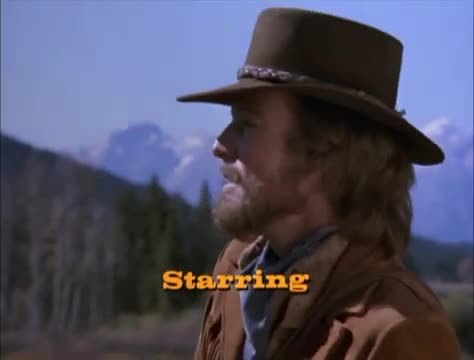


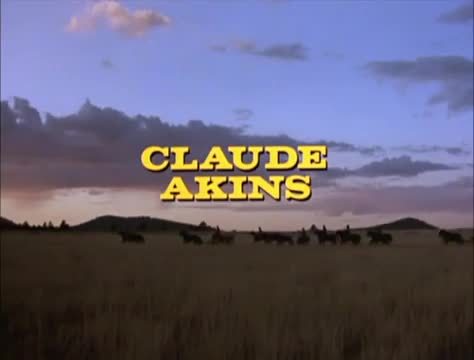

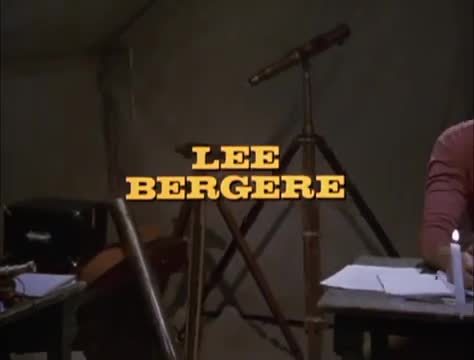
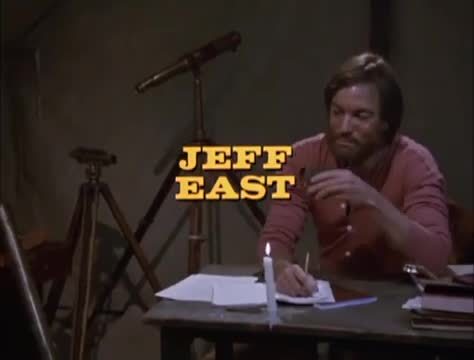
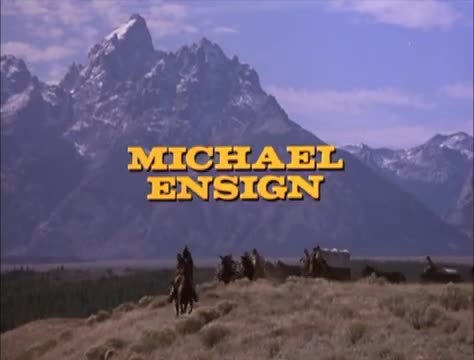




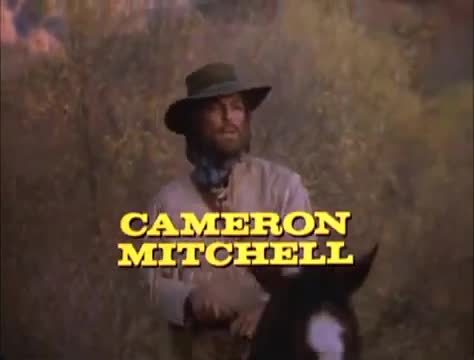
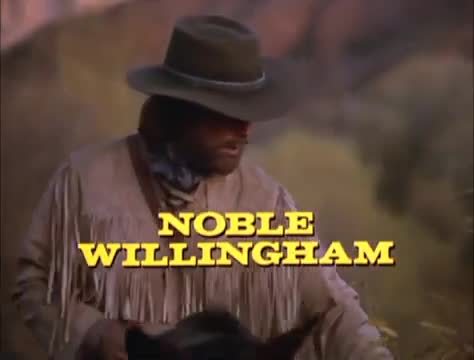

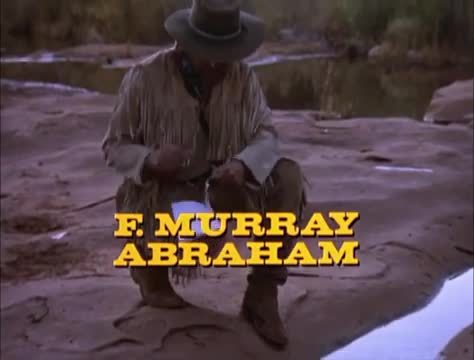
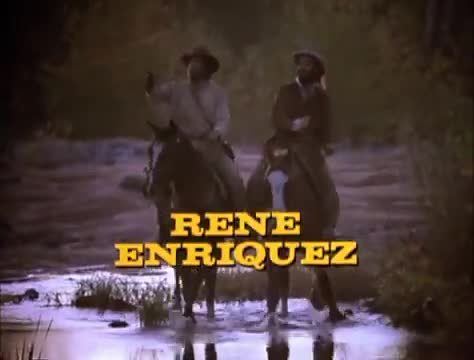
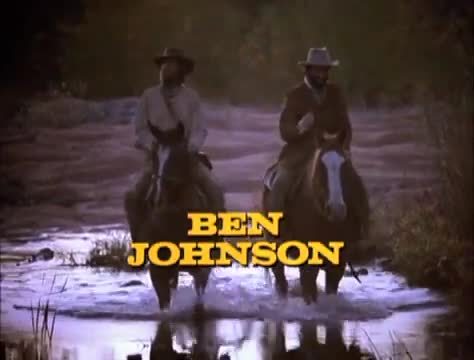
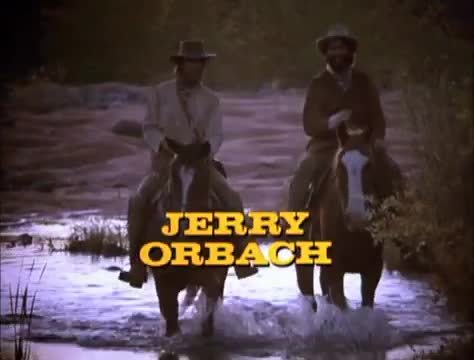





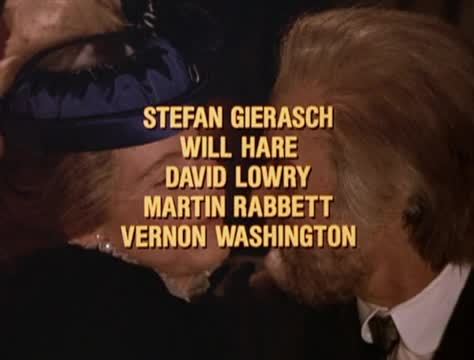
Dream West - CBS - April 13 - 20, 1986
Historical Drama / Western (3 episodes)
Running Time: 337 minutes
Stars:
Richard Chamberlain as John Charles Fremont
Alice Krige as Jessie Benton Fremont
F. Murray Abraham as President Abraham Lincoln
René Enríquez as General Castro
Ben Johnson as Jim Bridger
Jerry Orbach as Capt. John Sutter
G. D. Spradlin as General Steven Watts Kearney
Rip Torn as Kit Carson
Fritz Weaver as Senator Thomas Hart Benton
Anthony Zerbe as Bill Williams
Claude Akins as Tom Fitzpatrick
John Anderson as Brig. Gen. Brooke
Lee Bergere as 'Papa Joe' Nicollet
Jeff East as Tim Donovan
Michael Ensign as Karl Preuss
Mel Ferrer as Judge Elkins
Gayle Hunnicutt as Mrs. Maria Crittenden
Noble Willingham as President James Knox Polk
Matt McCoy as Louis Freniere
Cameron Mitchell as Commander Robert Stockton
Burton Gilliam as Martineau
John Harkins as Secretary of State George Bancroft
George American Horse as Indian Chief
4 notes
·
View notes